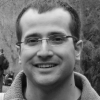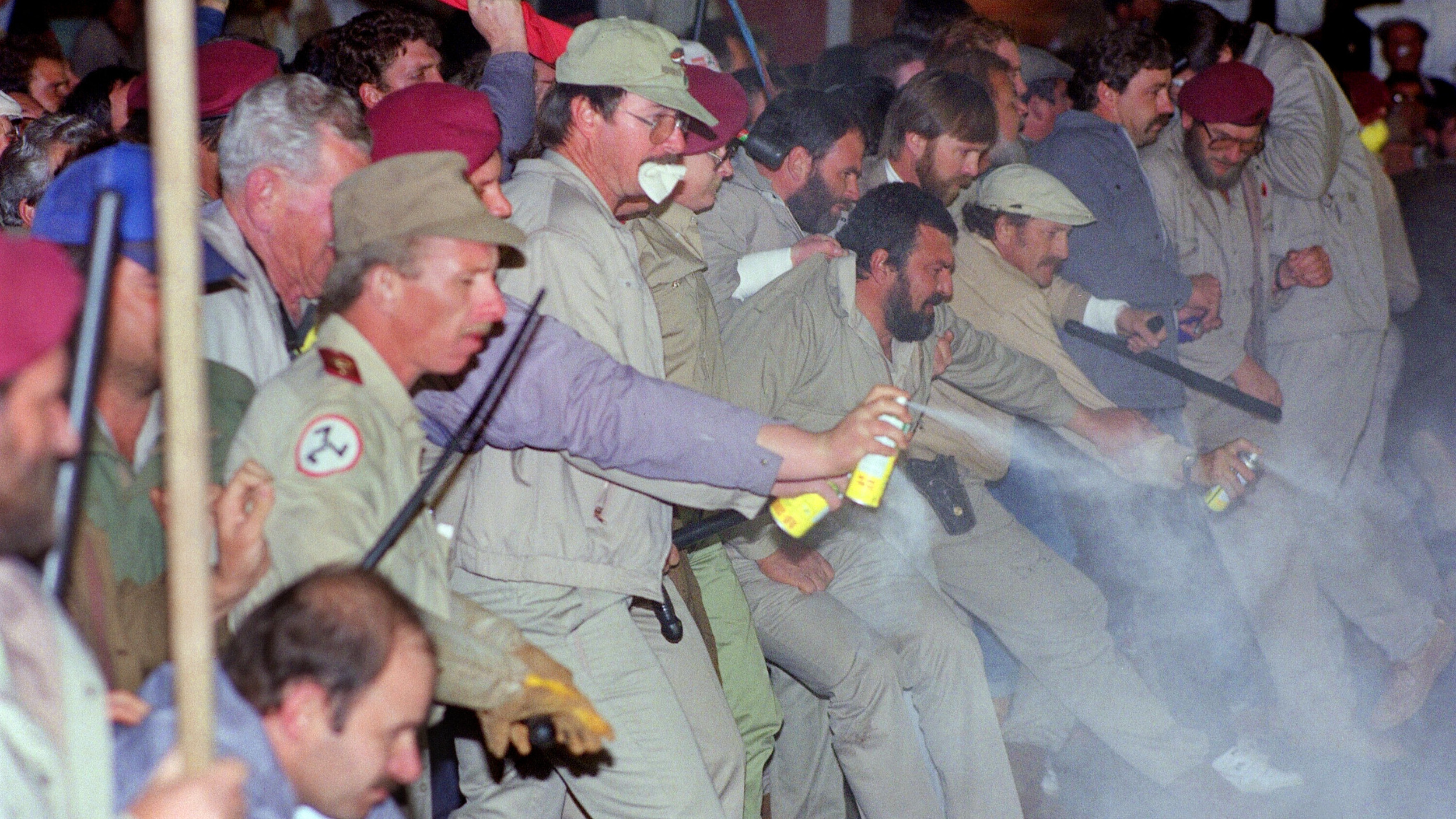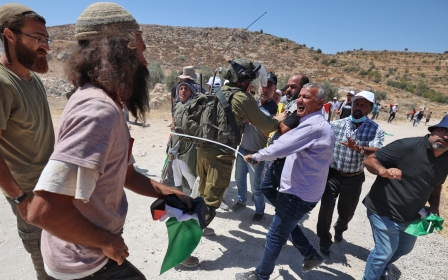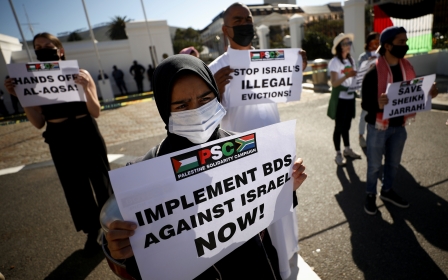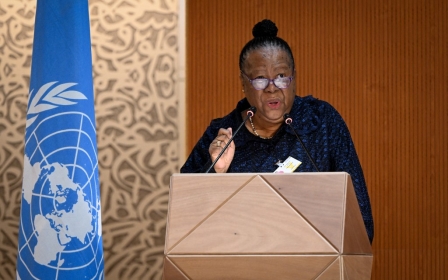As in South Africa, Israeli settler violence is central to apartheid
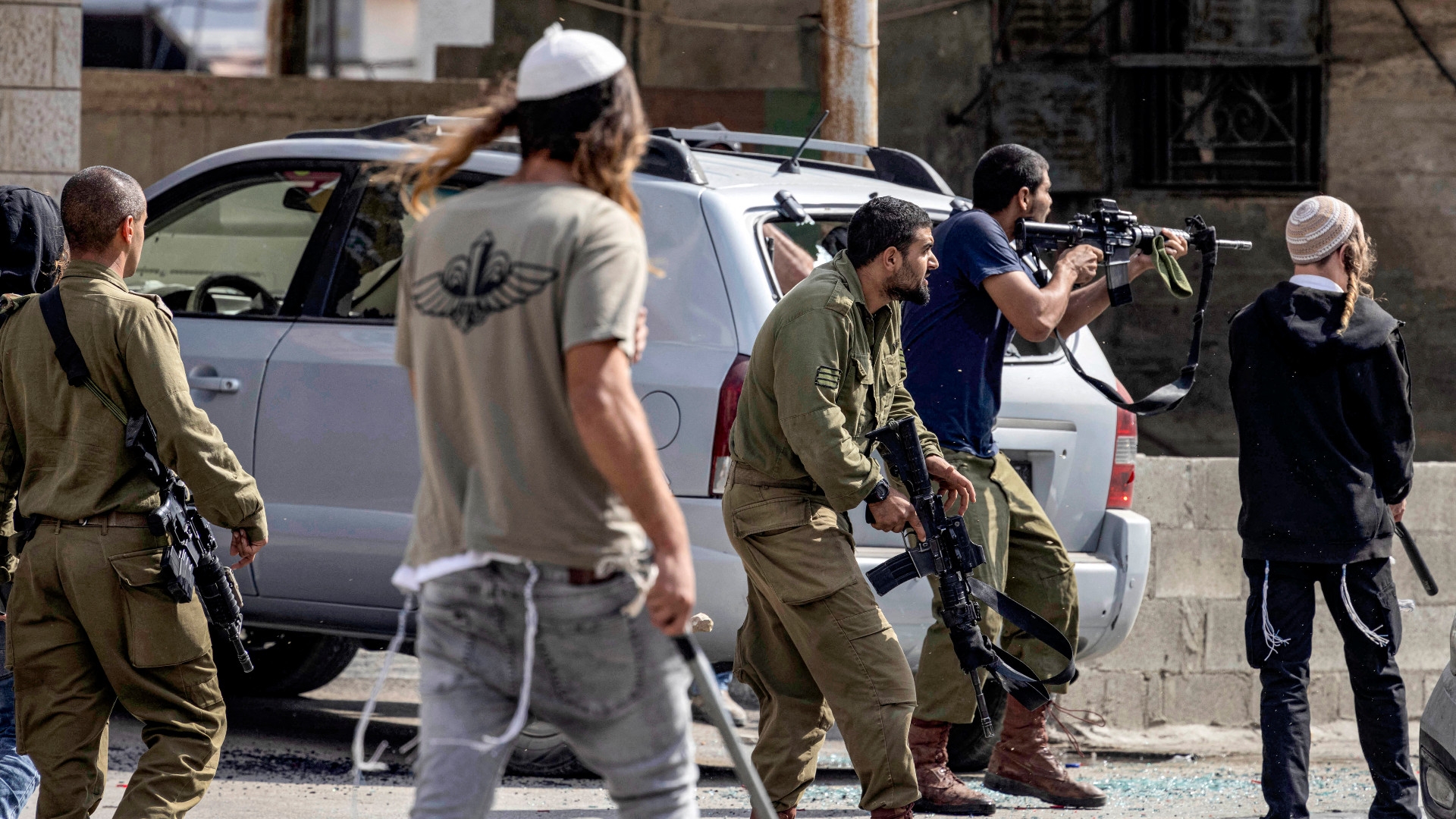
Like the opening line of Leo Tolstoy's famous novel, Anna Karenina, regarding happy and unhappy families, happy democracies are all alike; every unhappy apartheid regime is unhappy in its own way.
Between 1990 and 1994, South African President Frederik Willem de Klerk no longer outlawed African liberation movements, released Nelson Mandela from prison and negotiated with him, and led a series of reforms to dismantle the apartheid regime.
The Truth Commission report, released in December 1995, described in detail how one of the reactions to the dramatic reforms was the strengthening of the activities of far-right militias and the so-called "Third Force" - "anonymous" elements that were neither officially connected to the regime nor its opponents in the liberation movements.
The "Third Force" was responsible for the rise of political violence and instability in South Africa ahead of the general elections in April 1994, seeking to sabotage the country's transition to democracy.
Among other things, the clandestine group orchestrated violent incitement, random shootings, attacks on public transportation commuters which killed hundreds, murders of pro-democracy activists and large-scale massacres.
New MEE newsletter: Jerusalem Dispatch
Sign up to get the latest insights and analysis on Israel-Palestine, alongside Turkey Unpacked and other MEE newsletters
The report found no sufficient evidence directly tying the "Third Force" to the top echelons of the regime or proving that the group was part of a hidden strategy of the de Klerk government.
However, it exposed current and former members of the security forces, including senior officials, as members of the group, which the de Klerk government did not effectively shut down.
During the Seven Day War, which took place between 25-31 March 1990 in the Pietermaritzburg area, thousands of armed men of the Bantustan KwaZulu's militia, together with white far-right activists, raided the homes of individuals associated with the African National Congress (ANC) and other liberation movements, killing about 200 people, destroying 3,000 houses and displacing 20,000 civilians who were forced to flee their homes.
South African police officers and soldiers supported the pro-apartheid militias with weapons and intelligence and even helped commission the crimes themselves
Most of the victims were women, children, the sick and the elderly who could not escape fast enough.
The Truth Commission found evidence that police officers and soldiers supported the attackers with weapons and intelligence and even assisted in the commission of the crimes themselves, including transporting the attackers, standing by during the attacks and participating in the attacks.
Pretoria infiltrated secret agents into these groups whose legal limits in their activities were extremely vague, and they themselves participated directly in the armed activities of the militias. The Afrikaner Resistance Movement (AWB), the central armed far-right organisation, even claimed that about 40 to 60 percent of the soldiers and police were supporters of the far-right militias.
Until the mid-1980s, these far-right groups were involved in isolated and random armed acts.
From the moment de Klerk announced the political reforms in early 1990, the violent activity of the extreme right groups became more intense and coordinated. It included the deliberate murder of anti-apartheid activists, indiscriminate slaughter and shootings, random attacks on Africans and the widespread use of explosives.
No longer hiding
Similar to the extreme right in South Africa, the Israeli extreme right also switched to violent attacks with multiple participants. In previous decades, Israeli far-right groups operated mainly underground and in secret cells. In cases where attacks were carried out in public, the perpetrators were usually masked.
In the rare instances in which the extremists were identified and caught, they claimed that they were suffering from political persecution. This was the case with the "Jewish underground" that carried out acts of terrorism in the 1970s and 80s.
The same was the case with what the Shabak called the "rebellion organisation" from which emerged those who carried out the act of terrorism in the house of the Dawabsha family, and so was the squad that kidnapped, tortured and murdered the Palestinian boy, Mohammed Abu Khdeir.
Against the background of Netanyahu's far-right government, since the beginning of 2023, the far-right activists no longer feel the need to hide.
In February, about 400 far-right activists participated in the pogrom in Huwwara, where they spent hours setting dozens of houses, apartments, chicken coops and shops, and hundreds of cars on fire.
And in June, about 150 far-right activists arrived in the village of Orif and threw stones at Palestinians; about 100 activists carried out a pogrom in the village of Luban Ash-Sharqiya that included vandalising and setting fire to dozens of businesses, vehicles and houses; and about 200 activists carried out a pogrom in the village of Turmus Ayya that included the burning of dozens of homes and cars.
The Israeli far-right activists no longer have a reason to operate underground. The pogroms were openly organised on social networks and WhatsApp groups, with the participation or knowledge of members of the government and its coalition in the Knesset and their assistants.
The physical movement of the hundreds of activists towards the Palestinian villages and their entry into them was immediately identified and reported by Israeli media, Palestinian residents and human rights organisations that are in contact with them. Even without their reports, the area there is covered with army and police security cameras. Despite all this, the pogroms lasted for a long time, sometimes hours.
As in South Africa, Israeli policemen and soldiers stood by and allowed far-right activists to complete the pogroms. The Israeli military was not even ashamed to publish a statement that the Israeli rioters were preventing it from dealing with terrorism, meaning that the right-wing activists themselves are not terrorists and the pogroms are not acts of terrorism.
Among the policemen, soldiers and officers, there are probably those who live in settlements in the area or who identify with the far-right. The fact that some of the far-right activists carried weapons belonging to the military in the pogroms, at the very least, indicates that they are part of the local security forces of the settlements managed by the army.
It is possible that, as in South Africa, it will become known that the Israeli far-right activists received active help from officers in the army and police to carry out their plots.
Unlike the last years of the apartheid regime in South Africa, however, Israeli far-right activists have not resorted to mass and public pogroms to sabotage reforms or peace talks with the Palestinian leadership.
Defining the pogroms as acts of revenge is also misleading. The attacks on Israeli settlers are only the excuse for choosing the date of the pogroms, but they are not what motivates them. In fact, these are events to celebrate Israeli apartheid and Jewish supremacy.
The pogroms are a natural development in the evolution of Israeli apartheid when members of the government and the coalition are avowed supporters of the far-right Rabbi Meir Kahane, and incite for committing war crimes and ethnic cleansing of the Palestinian population on both sides of the Green Line.
The pogroms are not a means but the goal itself.
The views expressed in this article belong to the author and do not necessarily reflect the editorial policy of Middle East Eye.
Middle East Eye delivers independent and unrivalled coverage and analysis of the Middle East, North Africa and beyond. To learn more about republishing this content and the associated fees, please fill out this form. More about MEE can be found here.


